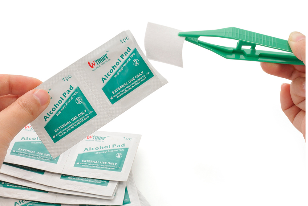17/05/2023
ByWinner Medical
 11920
11920
 Event
Event
This blog article teaches how to properly clean and disinfect your storage areas and more disposable medical product, which can lead to fewer infections in your facility.

How do bacteria get you sick?
Bacteria can get you sick by entering your body through the skin, mouth, or nose. When bacteria enter your body, they cause an infection. Infections can range from minor and short-term to serious and long-term.
Cleanliness is one way to prevent infections from happening. Cleaning products and surfaces can help reduce the number of bacteria that can cause infections. Cleaning products and surfaces can also help prevent the spread of infection. Disinfection means completely removing all traces of bacteria from a surface or object. Disinfectants can be effective in killing bacteria, but they may also have other effects on the environment or people's health.
How can we prevent bacterial infections in hospitals?
One of the biggest concerns for any hospital is the prevention of bacterial infections. Bacteria can cause many health problems, including pneumonia, bloodstream infections, and even death. Therefore, it is important to understand the different cleaning and disinfection procedures used to free people from these dangerous infections.
Surface disinfection and fomite control are the most common methods used to prevent bacterial infections in hospitals. Surface disinfection involves spraying a solution onto surfaces such as door handles and window glass, then allowing the solution to kill any bacteria on the surface. In order to prevent cross-contamination, Winner Medical insists that fomite control involves using disposable gloves and a mask when handling patients or medical equipment. Other methods to prevent bacterial infections in hospitals include air cleaning and hand washing.
Air cleaning uses machines that remove particles from the air, which can help to prevent exposure to bacteria. Hand washing involves thoroughly washing hands with soap and water and rinsing with clean water. These methods play an important role in preventing bacterial infections in hospitals.
Conclusion
Infections can happen to anyone, regardless of their immunities. Whether you're experiencing an annoying cold or something more serious like meningitis, it's important to take preventative measures and clean.